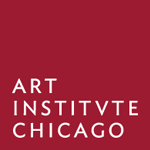A digital guide to the Art Institute of Chicago. Built with Kotlin 1.x for Android.
Please see this page for the iOS counterpart.
The Art Institute of Chicago app is your personal, pocket-sized guide to our collection. The mobile experience offers high-quality audio storytelling, letting the art speak to you. The Art Institute offers nearly a million square feet to explore—the Official Mobile App will be your guide.
Note that the codebase is young, and under heavy development. It might change significantly before the first official release. Nevertheless, we welcome suggestions and contributions from outside parties.
This codebase is licensed under the GNU Affero General Public License v3 as defined in the top-level LICENSE file. We make heavy use of the Android support libraries and the Kotlin programming language - our modifications to those, if any, are also licensed under the AGPL, unless otherwise indicated.
The following modules use proprietary APIs:
- The
mapmodule includes Google's "GoogleMap" and "LatLng" classes. - The
analyticsmodule connects to Google Analytics
The source code is organized into multiple
Gradle modules, each of which is contained
within a top-level directory. A full list of such modules can be found
in the settings.gradle config file.
The project maintains an overview of the more interesting modules in MODULES.md.
This project should build perfectly as is using the standard build commands, but is unlikely to function properly without key attributes defined in the build process.
Details below:
In .circleci/ you will find a config.yml which controls our circle ci
build process.
./gradlew assembleDebug assembleReleaseThere is one hidden aspect of the build process not available for public
consumption which is the keystore and keys used in the app. Due to
infrastructure difference between our public build server and release of
the app we handle injecting these variables into our build process by
using the method envVariable(key, isRelease) within the gradle files.
This function loads all the appropriate values for the keys from one of
three places depending on where you define them. You can see the full
set of values needed in env.sample.
These values are loaded from one of the following sources, listed here in decreasing order of priority:
- release.env or debug.env (Deployments use this model)
- local.properties (Development uses this model primarily)
- environment variables (Circle CI, uses this model)
Sample (added for reference as well)
blob_url=
default_buy_url=
member_validation_url=
member_validation_token=
fb_project_id=
fb_application_id=
fb_api_key=
fb_storage_bucket=
ga_tracking_id=
gcm_sender_id=
google_maps_api_key=
keystore=
keystore_password=
keystore_alias=
keystore_alias_password=As a special case, if blob_url is not defined or is not a string
starting with https://, the app can run in a reduced capacity. This
feature is intended for debug configurations only and thus does
nothing in release builds.
If a JSON file
- was present in either
db/src/main/assets/ordb/src/debug/assets/at build time - had the name
app-data-v3.jsonand - conforms to the expected format of
ArticAppData
then the content of that JSON file will overwrite whatever content is currently in the database.
